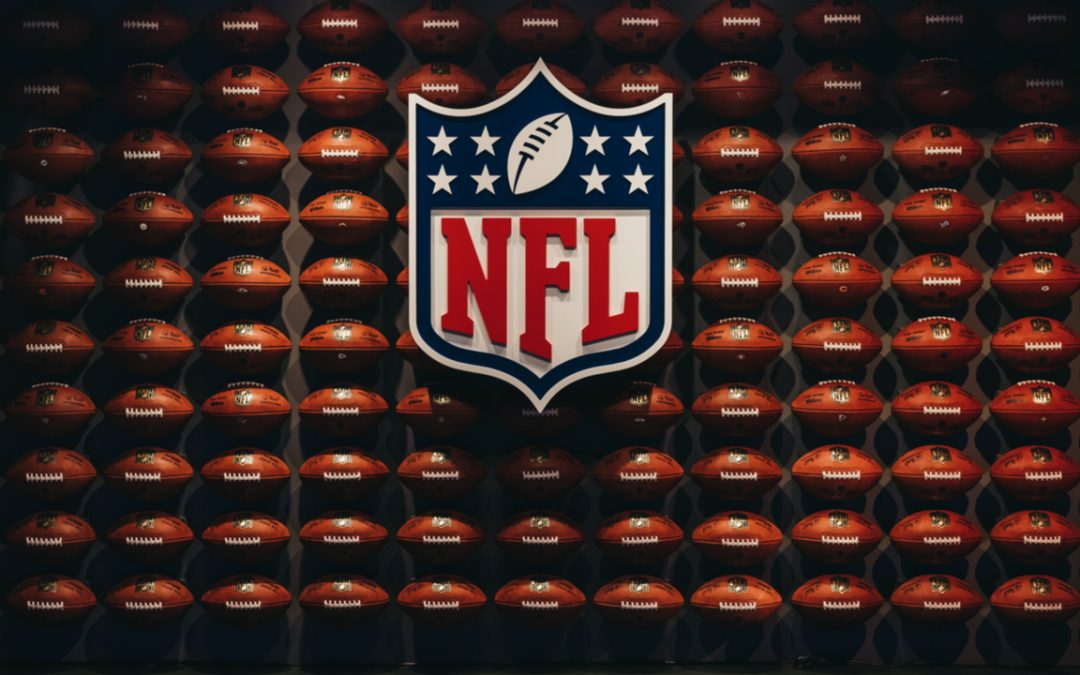According to a recent report, the National Football League (NFL) advised teams that they could not, at least for now, sell non-fungible tokens (NFTs) and sponsorships to digital currency companies. Advertisements for specific crypto assets were mentioned alongside initial coin offerings (ICOs), according to various club sources who remained anonymous.
Anonymous Club Sources Disclose the NFL’s New Policy
On Friday, The Athletic reported that sources familiar with the matter detail that the NFL is barring teams from participating in certain crypto ventures. The NFL’s alleged ban follows a great number of blockchain, NFT, and cryptocurrency endorsements from a number of star athletes and teams.
For instance, Tom Brady has shown his support for bitcoin with laser eyes, but he’s also started his own NFT company called Autograph. Brady and his Brazilian supermodel wife Gisele Bündchen also signed a long-term partnership with FTX.
But the seven-time Super Bowl champion is not the only one dipping into the crypto economy. The world’s largest cryptocurrency asset manager, Grayscale Investments, has partnered with the New York Giants. Trevor Lawrence, the NFL’s No. 1 Draft Pick, put his signing bonus into crypto in May. NFL player and offensive lineman Russell Okung gets half of his salary in bitcoin (BTC).
Kansas City quarterback Patrick Mahomes released a collection of NFTs on Makersplace on March 17th. The Tampa Bay Buccaneers player, Rob “Gronk” Gronkowski, sold an NFT collection as well. Moreover, MLB and the National Basketball Association (NBA) have both gotten involved in the crypto asset and non-fungible token space.
“Multiple club sources” from the NFL told The Athletic contributor Daniel Kaplan teams cannot contribute to this space at the moment. An anonymous NFL team official read the following:
Clubs are prohibited from selling, or otherwise allowing within club controlled media, advertisements for specific cryptocurrencies, initial coin offerings, other cryptocurrency sales or any other media category as it relates to blockchain, digital asset or as blockchain company, except as outlined in this policy.
if (!window.GrowJs) { (function () { var s = document.createElement(‘script’); s.async = true; s.type=”text/javascript”; s.src=”https://bitcoinads.growadvertising.com/adserve/app”; var n = document.getElementsByTagName(“script”)[0]; n.parentNode.insertBefore(s, n); }()); } var GrowJs = GrowJs || {}; GrowJs.ads = GrowJs.ads || []; GrowJs.ads.push({ node: document.currentScript.parentElement, handler: function (node) { var banner = GrowJs.createBanner(node, 31, [300, 250], null, []); GrowJs.showBanner(banner.index); } });
NFL’s New Policy Does Allow Specific Crypto Partnerships
The report does not disclose if any negative repercussions have been felt by those who have already participated with crypto firms or if they have been granted immunity for now. If the report holds weight, the NFL’s action may just stop players and teams from following the lead of other clubs and players.
The NFL’s purported new policy does allow sponsorships with firms “whose primary business is providing investment advisory and or fund management services in connection with cryptocurrency, provided that such advertising sponsorship rights are limited to promoting the company’s corporate brands,” the anonymous source concluded.
What do you think about the sources that say the NFL is barring teams from participating in certain cryptocurrency affairs and deals? Let us know what you think about this subject in the comments section below.














